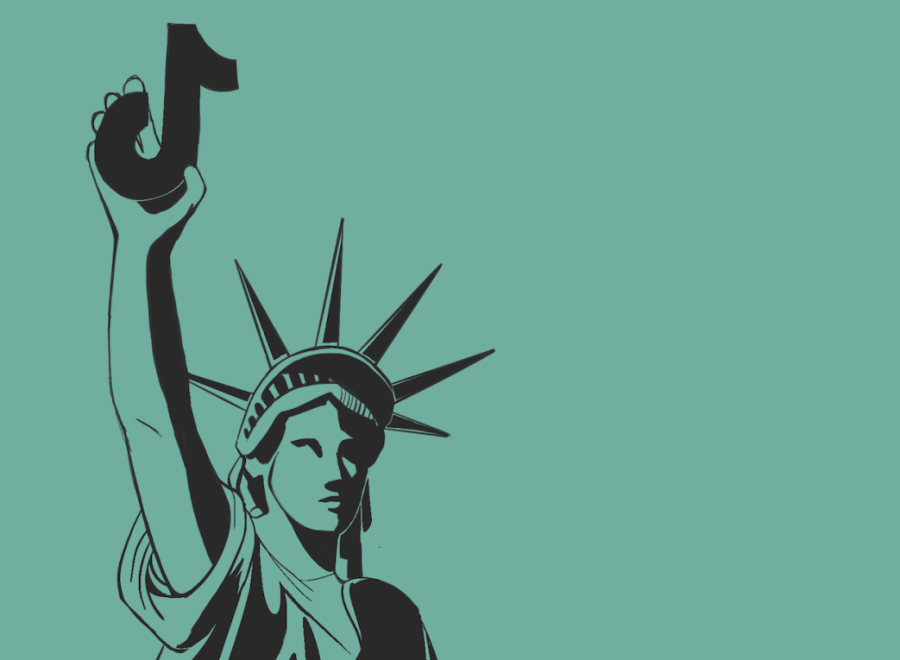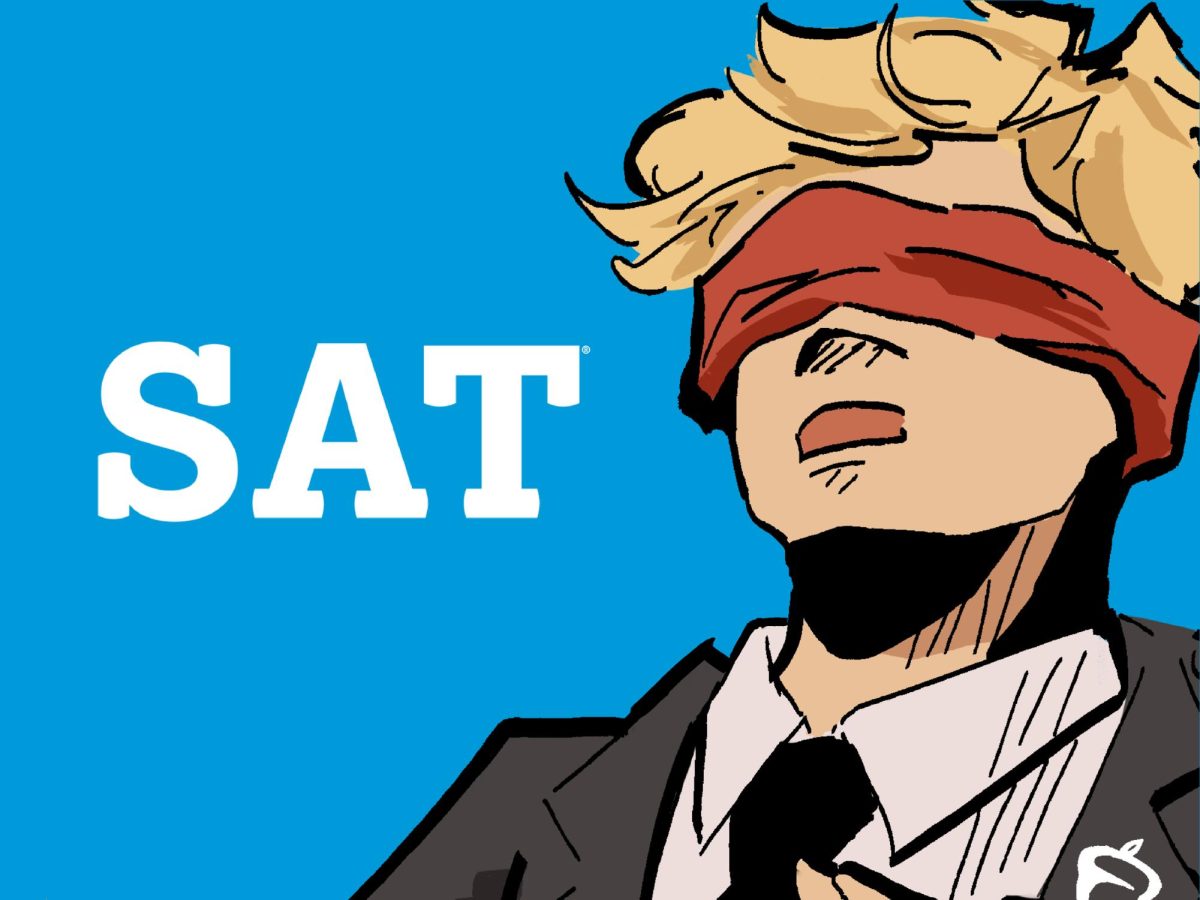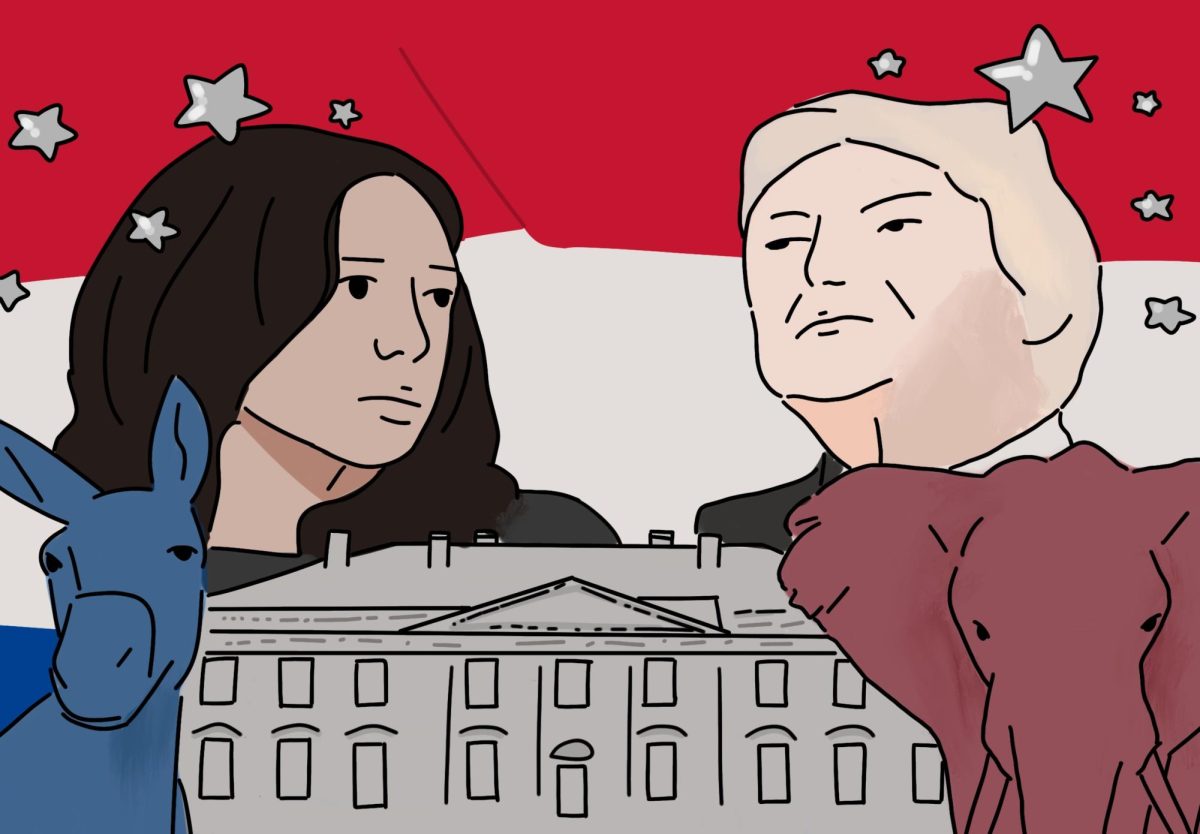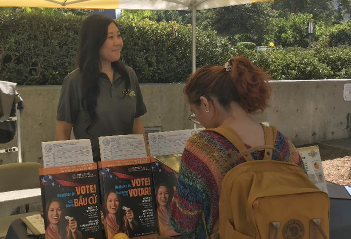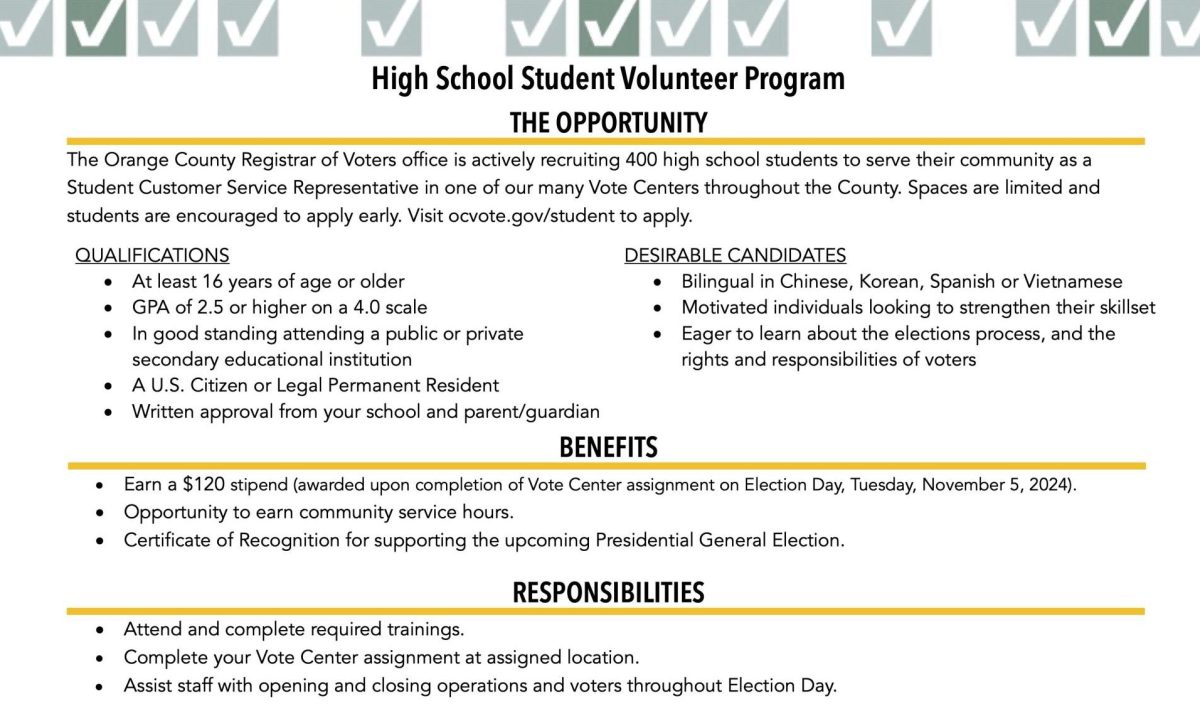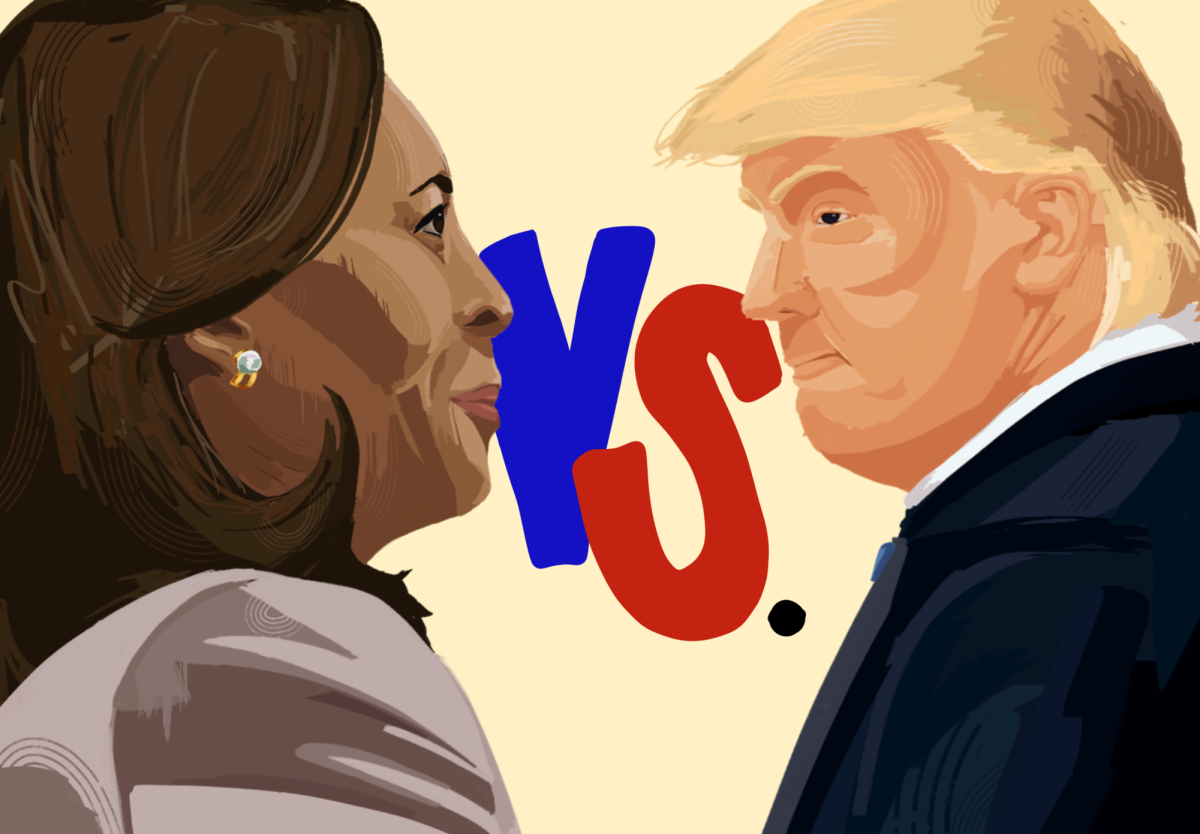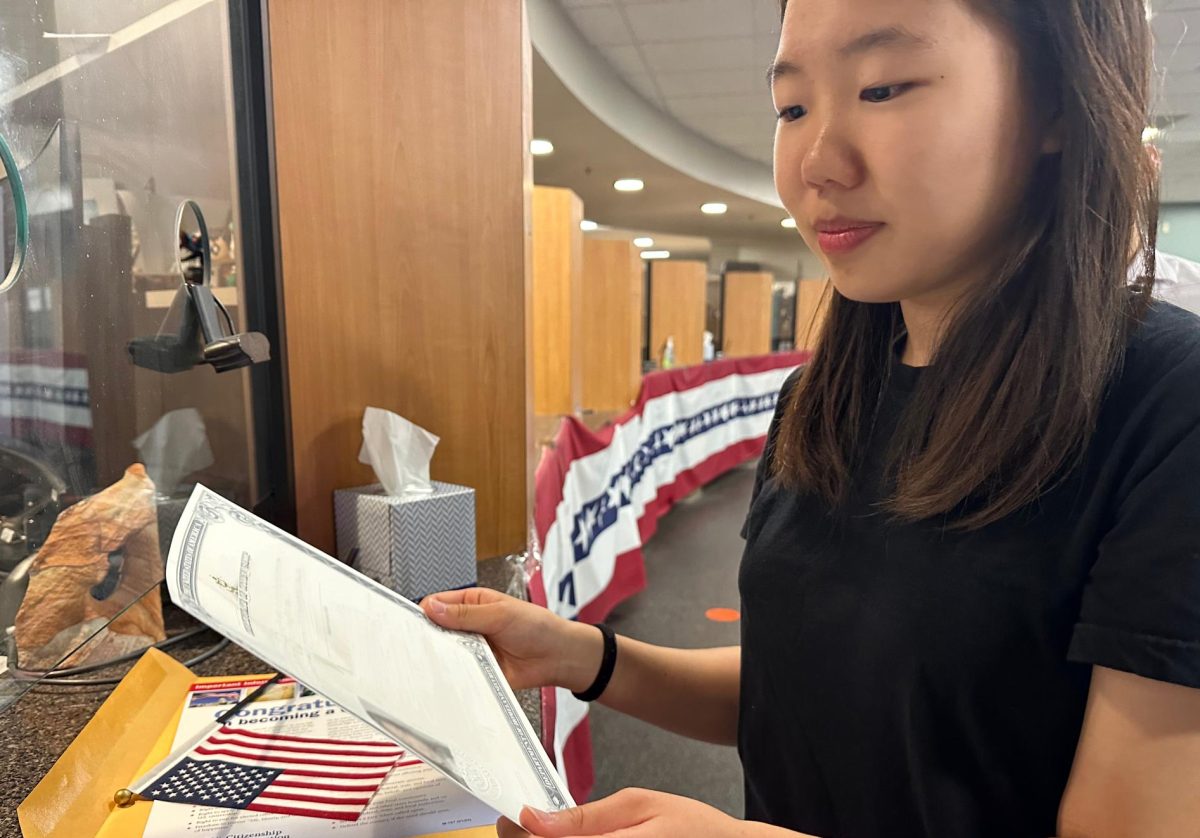In February, a Chinese high-altitude surveillance balloon was spotted over U.S. waters, where the device wandered for seven days before being shot down by the military off the coast of South Carolina on Feb. 4. The Chinese government claims it was a weather balloon that lost its trajectory, but U.S. officials believe it was sent to spy on the country’s military sites.
The white, billowing balloon not only deflated the peace between the United States and China with concern of espionage — the practice of spying, typically by the government — but cast an ominous shadow over the future of America’s use of TikTok, which is owned by ByteDance, a Chinese firm.
The Feb. 4 frenzy fueled further discussion during the March 23 congressional TikTok hearing, which demonstrated the American government’s resolve to institute a nationwide ban on the app, said The New York Times on March 23.
Despite ongoing legislative action to attempt to ban TikTok and other foreign-based technology companies that operate social media apps in the United States, restricting an app that 150 million American users access would contradict the country’s core values of freedom.
No substantial evidence exists to support the two cases the U.S. government presented in the committee: control over user data and algorithm.
According to a June 2022 article from buzzfeednews.com, over 80 leaked recordings reveal that ByteDance accessed nonpublic U.S. user data despite one of its executive’s sworn testimony in an October 2021 senate hearing.
Although the Washington Post said ByteDance fired the four employees who participated in spying on Dec. 12, the distrust toward the app grew as former President Trump warned the public about such surveillance from a foreign country. Thus, such wariness led to the U.S. congress launching a directive to ban the social media platform on government-issued devices last December.
Because of national security, this issue cannot be simply dismissed. However, according to a March 21 cnn.com article, security experts deny public evidence of Chinese espionage, and TikTok CEO Shou Zi Chew publicly said the company can refuse to share data with Communist government leaders.
TikTok is a hub of artistic expression across the globe. By putting these hypotheticals over the creative content that 150 million Americans view on the app, the United States would lose a platform people rely on daily for news and entertainment.
U.S. government officials also argue that the algorithms, known as the “For You page,” could be manipulated by the rival country to promote anti-American agenda or censor certain Chinese Communist Party actions like the 1989 Tiananmen Square massacre.
These concerns connect to the growing fear in Washington about the global rise of communism and China; however, sentiments such as these should not be involved when considering a social media platform that serves as a center of information.
During the March hearing, Chew denied that the party had such control, telling Republican Representative Cathy McMorris Rodgers that TikTok is a place for “freedom of expression,” and users can find footage of the Tiananmen Square massacre on the app.
On the other hand, even if videos surfaced with hatred toward the United States, according to the First Amendment, which protects the right to petition, religion, press, assembly and most importantly, the freedom of speech, users have the right to see and post such information and opinions freely.
According to a July 2020 forbes.com post, over 60% of the people on the app are Generation Z, which means removing TikTok would harm the spread of news and limit access to international conversations.
Generation Z has grown up with access to the internet, which allows this age group to be more vocal about sociocultural and political issues. Because this demographic consumes various forms of content daily, they formulate their own opinions and inform themselves with a click of a button on platforms like TikTok.
Instead of cultivating future generations of leaders, those who succeed in silencing TikTok would send Gen Zers backwards to the times when it was difficult to communicate and gather knowledge about the country, and the world.
Furthermore, the data the app collects, such as age, names, region, passwords and buying habits, is equivalent to that of other social media sites such as Facebook and Twitter. So, if the U.S. government were to ban TikTok, it would make sense that they prohibit other platforms with similar user data policies.
Although collected information obtained by these platforms is encrypted, politico.com said that much of it can be accessed through the commercial data market or cyber spy agencies. Thus, if the Chinese government really was out to spy Americans, they could view it regardless of where it’s stored.
Prohibiting the app would not be the solution to secure data; instead, the government should work on strengthening projects to protect user data like Project Texas, a $1.5-billion corporate restructuring plan, which the United States initiated in July 2022 in hopes of overseeing at instilling American confidence in TikTok’s operations and security.
Although TikTok has ties with a foreign company, based on the open American market, the controversial platform has the right to commercially compete and allow the five million businesses who utilize this means of communication to promote their businesses.
Outlawing TikTok would contradict our country’s title as “the land of the free,” which is symbolic to the country given its history of representing an open nation for the people, on an political and economical level. It would mean putting government control over public approval and interest.
Removal of the app would not make America more secure; instead, it would weaken the confidence of the people in its freedom by normalizing censorship.
The United States has never banned an app, and it should not start now.



